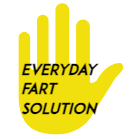How to not fart?
Do you find yourself wondering how to navigate the awkwardness of passing gas discreetly?
In social settings or even at work, mastering the art of not farting can be a real challenge. Fear not, as we delve into practical strategies to handle this common yet embarrassing bodily function.
The key lies in understanding digestion and making mindful choices in diet and lifestyle.
By incorporating foods that aid digestion and practicing proper posture, you can significantly reduce the occurrence of flatulence.
Here, how to get rid of smelly fart?
Discover expert tips from leading nutritionists and health professionals to maintain gut health and minimize gas production.
Curious to explore more insights on this delicate topic? Join us as we uncover the secrets to a gas-free existence and learn from trusted experts in the field.
Say goodbye to uncomfortable moments and embrace a healthier, more confident you!
How to not fart?
Reducing farting involves dietary and lifestyle changes. Firstly, avoid gas-producing foods like beans, broccoli, and carbonated drinks.

Chew food slowly to aid digestion and minimize swallowed air. Stay hydrated and exercise regularly to promote a healthy digestive system.
Incorporate probiotics and fiber-rich foods for gut health. Manage stress to prevent digestive issues.
Avoid smoking and limit alcohol intake, as they can contribute to gas production.
Practice good posture to prevent air swallowing. Ultimately, listen to your body’s signals, and if excessive farting persists, consult a healthcare professional for personalized advice.
12 ways to not fart
1. Dietary Modifications
Diet plays a significant role in controlling flatulence. Reduce gas-producing foods such as beans, cabbage, onions, and certain fruits like apples and pears.
Here, are smelly fart healthy?
These foods contain carbohydrates that are challenging to digest, leading to increased gas production in the gut.
Instead, focus on consuming easily digestible foods like lean proteins, cooked vegetables, and whole grains. Additionally, avoid carbonated drinks and artificial sweeteners, which can also contribute to gas buildup.
2. Slow and Mindful Eating
Chewing food slowly and thoroughly aids digestion and reduces the amount of air swallowed during meals.
Eating in a rushed or distracted manner can lead to swallowing excess air, which can contribute to bloating and gas. Practice mindful eating by savoring each bite, putting down utensils between bites, and paying attention to hunger and fullness cues.
3. Hydration and Fiber Intake
Stay adequately hydrated throughout the day to support healthy digestion. Water helps soften stool and move it through the digestive tract smoothly, reducing the likelihood of gas buildup.
Additionally, include fiber-rich foods like fruits, vegetables, legumes, and whole grains in your diet.
Fiber promotes regular bowel movements and prevents constipation, which can contribute to flatulence when stools become backed up.
4. Probiotics
Incorporate probiotic-rich foods such as yogurt, kefir, kimchi, sauerkraut, and kombucha into your diet.
Probiotics are beneficial bacteria that help maintain a healthy balance in the gut microbiome, reducing gas and bloating.
Here, how to hold fart?
Alternatively, consider taking a probiotic supplement after consulting with a healthcare professional.
5. Manage Stress
Stress can affect digestion and exacerbate gastrointestinal issues, including flatulence.
Practice stress-reducing techniques such as deep breathing, meditation, yoga, or engaging in hobbies and activities that promote relaxation. Managing stress not only improves overall well-being but also supports a healthier digestive system.
6. Limit High-Fat Foods
High-fat foods can slow down digestion and lead to bloating and gas.
Limit intake of fried foods, fatty meats, creamy sauces, and excess oil. Instead, opt for leaner protein sources, healthy fats like avocados and nuts in moderation, and lighter cooking methods such as baking, grilling, or steaming.
7. Avoid Chewing Gum and Hard Candies
Chewing gum and sucking on hard candies can cause you to swallow air, leading to increased gas production. If you enjoy freshening your breath or chewing something, opt for sugar-free mints or drink water instead.

8. Quit Smoking
Smoking introduces toxins and chemicals into the digestive system, disrupting normal gut function and potentially leading to increased flatulence.
Quitting smoking not only benefits overall health but also contributes to better digestive health and reduced gas.
9. Exercise Regularly
Regular physical activity promotes healthy digestion by stimulating bowel movements and reducing bloating.
Here, how to get fart putty out of carpet?
Aim for at least 30 minutes of moderate exercise most days of the week. Activities like walking, jogging, cycling, or yoga can all contribute to a healthier digestive system.
10. Be Mindful of Food Combining
Certain food combinations can lead to increased gas production.
For example, combining high-protein foods with high-carbohydrate foods in the same meal can slow digestion and result in fermentation and gas. Try to balance meals with a mix of proteins, carbohydrates, and fats for optimal digestion.
11. Check for Food Sensitivities
Some individuals may have food sensitivities or intolerances that contribute to excessive gas.
Common culprits include lactose (found in dairy products), gluten (found in wheat and other grains), and certain FODMAPs (fermentable carbohydrates).
Consider keeping a food diary and consulting with a healthcare professional to identify and manage any food sensitivities.
12. Consult a Healthcare Professional
If excessive flatulence persists despite dietary and lifestyle changes, it’s essential to consult a healthcare professional.
They can assess your overall health, perform any necessary tests or evaluations, and provide personalized recommendations or treatments to address underlying digestive issues contributing to flatulence.
I fart 100 times a day- What to do?
If you’re experiencing excessive flatulence, known as passing gas more than 100 times a day, it’s crucial to consult a healthcare professional.
This level of flatulence could indicate underlying digestive issues such as food intolerances, bacterial overgrowth, or gastrointestinal disorders.
Keeping a food diary to track potential triggers, practicing mindful eating, staying hydrated, and incorporating probiotics may offer some relief.
Here, how to not fart in class?
However, a thorough evaluation by a doctor, including possible tests and examinations, is necessary to determine the cause and appropriate treatment plan for managing excessive flatulence effectively.
How to stop a fart from making noise?
To reduce the noise of a fart, adjust your sitting position by leaning slightly to one side or lifting one buttock off the seat while releasing gas.
This change in posture can muffle the sound. Additionally, timing your release with background noise like coughing, sneezing, or during louder moments can help mask the sound.
Consuming foods that produce less gas and avoiding carbonated drinks can also minimize fart noise.
However, remember that passing gas is a natural bodily function, and focusing too much on suppressing noise can lead to discomfort.
Why do I fart when I walk?
When walking, your body experiences rhythmic movements that can stimulate the digestive system and promote gas release.
The bouncing motion of walking can agitate the contents of your gastrointestinal tract, causing trapped air or gases to be expelled as farts.
Additionally, physical activity increases blood flow to the digestive organs, enhancing their function and potentially leading to increased gas production.
Eating before walking, especially foods that are difficult to digest or produce gas, can also contribute to farting while walking.
It’s a natural bodily response and usually not a cause for concern unless accompanied by other symptoms.
Why do I fart so much at night?
Several factors can contribute to increased flatulence at night. Firstly, your body’s digestion slows down during sleep, allowing gas to accumulate in the digestive tract.
Additionally, evening meals or snacks, especially those high in fiber or difficult to digest, can lead to more gas production overnight.
Swallowed air, often from talking or eating too quickly during evening social activities, can also contribute to nighttime flatulence.
Lastly, certain medical conditions like irritable bowel syndrome (IBS) or lactose intolerance may manifest symptoms more prominently during nighttime rest.
Consulting a healthcare professional can help identify any underlying issues and provide appropriate management strategies.
Causes of excessive gas in females
Excessive gas in females can stem from various factors. Hormonal changes during menstrual cycles can affect digestion and lead to increased gas production.
Dietary choices, such as consuming gas-producing foods like beans, cabbage, or carbonated beverages, can also contribute.
Digestive disorders like irritable bowel syndrome (IBS), lactose intolerance, or celiac disease may cause excessive gas in females.
Additionally, stress and anxiety can impact gut health, leading to bloating and flatulence.
Hormonal contraceptives or medications that affect the digestive system can further exacerbate gas issues. Managing diet, stress levels, and seeking medical advice can help address excessive gas in females
Related faq’s
How can we avoid fart?
To minimize farting, adopt a balanced diet rich in easily digestible foods like lean proteins, cooked vegetables, and whole grains while avoiding gas-producing foods like beans and cabbage.
Chew food slowly, stay hydrated, and exercise regularly for a healthy digestive system. Incorporate probiotics and fiber for gut health and manage stress to prevent digestive issues.
Avoid smoking, limit alcohol and carbonated drinks, and maintain good posture to reduce air swallowing.
If excessive farting persists, consult a healthcare professional for personalized advice and to rule out any underlying digestive disorders.
Why do I fart so much?
Excessive farting, known as flatulence, can result from various factors.
Eating gas-producing foods like beans, broccoli, and carbonated drinks can lead to increased gas in the digestive tract.
Swallowing air while eating or drinking quickly, using straws, or chewing gum can also contribute.
Digestive disorders such as irritable bowel syndrome (IBS), lactose intolerance, or celiac disease may cause frequent flatulence.
Additionally, bacterial fermentation in the gut and incomplete digestion of certain foods can lead to gas production.
Managing diet, addressing digestive health conditions, and adopting healthy eating habits can help reduce excessive farting.
How do you fart without it smelling?
Farting without a strong odor involves dietary adjustments. Consume foods with less sulfur, such as lean proteins, grains, and certain vegetables like carrots and spinach.
Avoid sulfur-rich foods like eggs, onions, and cruciferous vegetables.
Drinking plenty of water also helps dilute the odor. Additionally, regular physical activity promotes a healthy digestive system, reducing the intensity of fart smells.
How do you relieve trapped gas?
Relieving trapped gas involves several methods. Gentle exercise, like walking or yoga poses targeting the abdomen, can help move gas through the digestive system.
Massaging the abdomen in a clockwise motion may also provide relief.
Drinking warm liquids, such as herbal teas or warm water with lemon, can relax the muscles and aid gas passage.
Over-the-counter gas relief medications containing simethicone can break up gas bubbles for easier expulsion.
Conclusion:
In conclusion, it’s evident that effective communication is the cornerstone of successful interactions, whether in personal relationships or professional environments.
By fostering empathy, active listening, and clear articulation, individuals can navigate challenges, build stronger connections, and achieve meaningful outcomes in various aspects of life.



